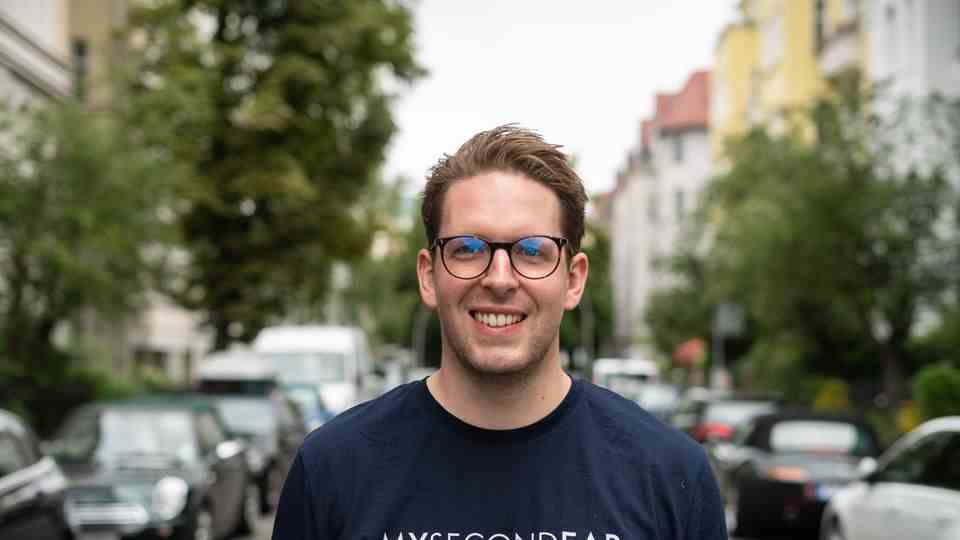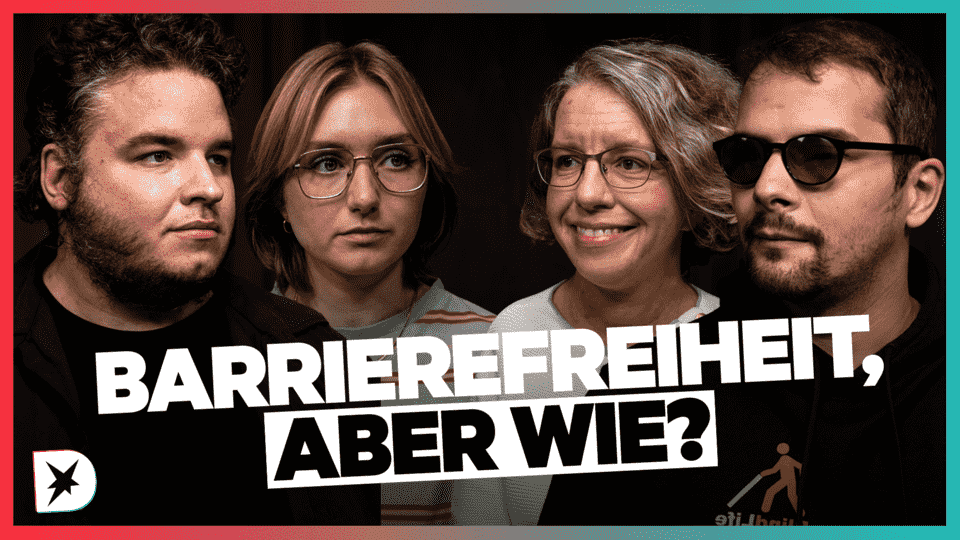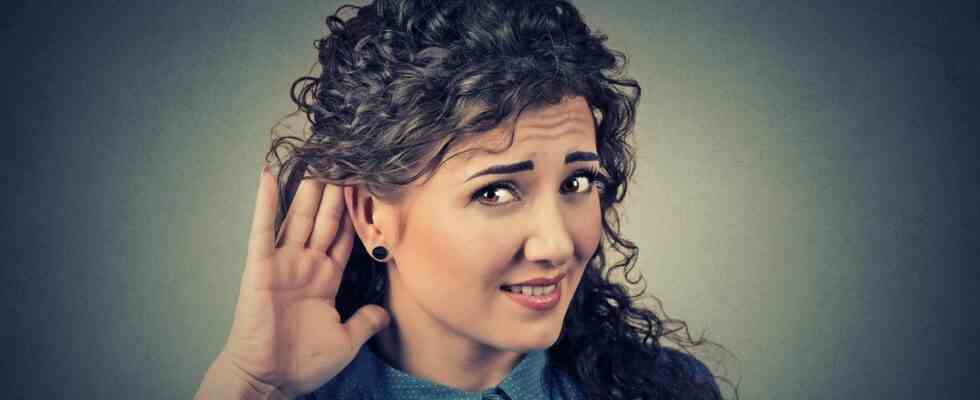We listen to music that is too loud and work without hearing protection – and thus run the risk of becoming hard of hearing. What that means for your own life, because Niklas Spichalsky exactly. The 30-year-old has lived with hearing loss since childhood. In conversation with the star he tells how it feels.
A recent study shows that many young people run the risk of becoming hard of hearing because they listen to music too loud and do not take good care of their hearing. With “MySecondEar” you founded an online acoustician. How does a hearing loss actually become noticeable?
Nicholas Spichalsky: Many like to compare hearing loss with a visual impairment such as nearsightedness. If you’re short-sighted, you just don’t see well in the distance. It’s different with hearing loss, it’s not about distance or volume. Anyone who is hard of hearing hears everything like a kind of gap text and therefore has to concentrate very much all the time in order to somehow deduce the gaps. It’s a little different for everyone, but when I don’t have my hearing aids in, it seems like everyone around me is mumbling.
In which everyday situations do hard of hearing people encounter the greatest barriers?
It starts when someone approaches me from the side or speaks very quickly. People who are hard of hearing sometimes need a little longer to understand what is said, which sometimes leads to incomprehension. Loud background noise and wearing a face mask during the pandemic were also factors that made communication difficult. Simply because as a hearing impaired person you are very dependent on facial expressions and gestures.
Why people become hard of hearing
Hearing loss affects around 16 million people in Germany, the number of unreported cases is estimated to be even higher. How is it that so many people are affected?
Young people in particular listen to music that is too loud, attend music concerts that are too loud and stand right in front of the speakers in clubs. If you spend five minutes in a zone where the noise is too loud, you have already irreparably damaged your hearing. Despite this, many people ignore the danger. Even during noisy street work or in production facilities, hearing protection is still far too often not worn. In fact, it’s safe to assume that those who don’t wear earmuffs are all already hard of hearing.
Apart from loud noises, are there other causes of hearing loss?
Of course, stress is also a risk factor. We now know that too much stress can damage our sense of hearing, even leading to sudden hearing loss. And there is a genetic component.

Niklas Spichalsky is the founder of the online acoustician “MySecondEar”. He himself has worn hearing aids since he was a child and knows exactly what hurdles the hard of hearing encounter with them. That’s why he actively campaigns for more sustainability and comfort for the wearer – and against the stigma that still affects the hard of hearing.
© mysecondear
Despite the high number of people affected, hearing loss is hardly an issue in society at large. Why?
I think there is a lack of enlightenment. Many people simply do not realize what impact their current behavior can have on their hearing in old age. I mean, they really lose a complete sense that doesn’t come back either. Although you can counteract this with hearing aids or cochlear implants, it changes your life permanently.
What relatives of hearing impaired people should consider
You are now 30 years old and have been hard of hearing since childhood. How does that affect your life?
My whole family is hard of hearing, so it wasn’t until quite late that I really became aware of it myself. At school, however, I always understood things more slowly than my classmates. That way I couldn’t react until later. For example, if someone made a joke, I laughed later than everyone else because I had to fill in the gaps first. As a result, when in doubt, you seem rather stupid instead of hard of hearing.
Today you have a modern hearing aid that spares you such experiences. How do you look back on your childhood today?
In retrospect, of course, it was a time when I had an unnecessarily difficult time because my hearing aids were not that good. Because I had to use all my brainpower to understand what was being said, I had less capacity for the content.
And how do you live with the hearing loss today?
I got along very well with it. Because I’m still young, I can compensate quite well and thanks to my hearing aid everything has normalized. However, many elderly people who are hard of hearing isolate themselves and increasingly withdraw into their own world because of the communication barriers. Loneliness and depression are also big issues. Anyone who constantly feels misunderstood will sometimes have problems with their self-esteem and eventually give up.
How can I, as a family member, help to ensure that people who are hard of hearing do not feel isolated?
The most important thing is definitely attention. It helps enormously to make sure that the hearing-impaired person feels involved and to actively involve the person in the conversation. Also, it’s best not to speak to him from the side, but face to face—and loud and clear. Also, if the hearing impaired don’t understand something, simply rephrasing the sentence instead of repeating it helps.

How hearing aids change lives
You describe the moment when you got your first modern hearing aid at the age of 24 as “life-changing”. Why?
I could suddenly really hear everything. This made me perform better at university and also made me more self-confident in my private life. That’s why I also developed professionally in this direction. I wanted to make hearing aids as practical and smart as possible. Today the devices can connect to the smartphone, play music, tell me the weather and I can use it to make calls. That’s just cool.
And yet many people who are hard of hearing do not wear hearing aids…
Yes, because many either don’t know or don’t want to admit that they are hard of hearing. You have to imagine it: there are thousands of people walking around who don’t hear well enough and are therefore falling short of their actual potential. They prefer to turn up the volume on the television or ask three times if they don’t understand snippets of a conversation. Those are warning signs. And you could have it so much easier with a hearing aid.
Can you hear “normally” again with a hearing aid?
That depends on how long you’ve been hard of hearing without using a hearing aid. For example, if I’ve been in a wheelchair for five years, then I won’t run a marathon right away. So it takes time for the senses to get used to it. Sometimes it is also the case that the brain has already forgotten certain frequencies because they have not been used for too long. They don’t come back through the hearing aid either.
What do you recommend to people who are now thinking: “Shit, I think I’m hard of hearing”?
The first step is definitely a hearing test, which you can do at the ear, nose and throat doctor or at the acoustician. It gives you certainty. And then, of course, a hearing aid.

